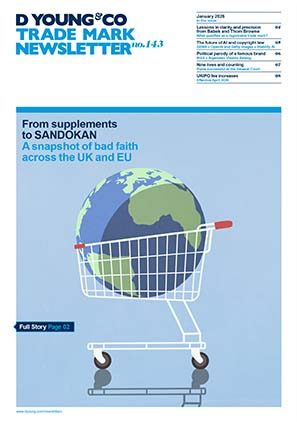Seniority moment: Peek & Cloppenburg
Seniority is a quirk providing that the holder of a national mark registered in an EU country who files a later EU trade mark (EUTM) for the same mark may surrender the earlier mark and claim seniority from it under the EUTM – the owner then enjoys the same rights that they would if the earlier mark remained registered.
In this case, an EUTM claimed seniority from two German registrations which were subsequently surrendered. The claimant sought an order that the EUTM owner could not claim seniority, arguing that when they were surrendered they could also have been cancelled due to revocation, or invalidated by earlier rights.
The CJEU considered whether the conditions for revocation/invalidation needed to apply both when the marks were surrendered and on the date of the last hearing before the court dealing with the revocation/invalidity.
The Directive does not stipulate when to assess whether the conditions for invalidity/revocation have been met – nevertheless it was clear that the assessment is to determine retrospectively whether those conditions had been met on the date when the earlier mark was surrendered/lapsed. To assess the position also when a cancellation ruling is made was not compatible with the Directive.
The CJEU noted that seniority creates a fiction whereby an EUTM owner may continue to enjoy, in a particular country, protection afforded by an earlier national mark which has been cancelled – not to enable that mark to continue to exist. Any use of that mark after cancellation must be regarded as use of the EUTM (not of the cancelled mark). This cases raises an academic point that does not arise often in practice. However, with Brexit imminent, what happens to UK national marks that have been allowed to lapse as part of a seniority claim when the pertinent EUTM is no longer deemed to cover the UK will need to be assessed in due course. This case may give an idea of how the CJEU may interpret such issues going forward.

